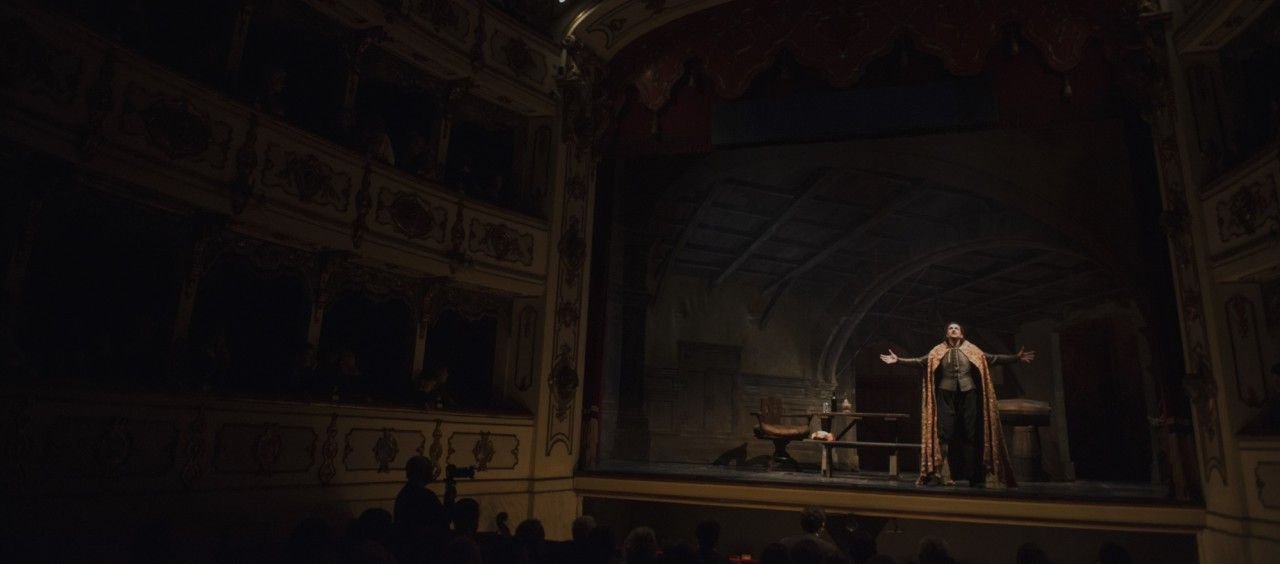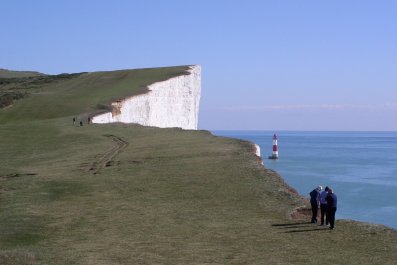"The public is informed that it has been necessary to cancel Il Trittico of Puccini in October and Lucia di Lammermoor of Donizetti in November," reads the brief web announcement. It's not just any opera house cutting the famous Italian works with extremely short notice. Bari's Teatro Petruzzelli, Italy's fourth-largest, boasts a century-long history of music-making by the best in the business.
But now the Petruzzelli, the best-known landmark of this charming and somewhat chaotic port city on Italy's south-eastern coast, has run out of money. After the city council slashed its funding for the theatre – beautifully rebuilt after being destroyed by arson 23 years ago – the region of Apulia withheld its money, too. "How is it possible that they're cancelling productions just two months in advance?" asks Daniele Rustioni, the Petruzzelli's 31-year-old music director. "These are our two biggest titles this season. I consider it an honour to conduct at this historic opera house and I really want to stay, but if the situation continues like this, I'll have to say goodbye."
That's because Rustioni, an emerging star on the international stage, has plenty of other offers. But, like the singers engaged for the two operas, he'll also lose his pay. Other Italian opera houses have cancelled individual performances, but this is the first time an opera house has a large chunk of the opera season in such an abrupt fashion. Facing an empty bank account, general director Massimo Biscardi may have had no choice, but his move may be a harbinger of worse things to come both in Bari and other Italian cities. "The big problem is that no serious artist will trust Bari now," says Enrico Votio Del Refettiero, considered Italy's best-informed opera blogger. "The Petruzzelli was already paying singers late. And now other Italian opera houses will say, 'if Bari can cancel, so can we'."
Given that they face the same depleted bank accounts as the Petruzzelli, they may have to. Earlier this year, the head of musical affairs at Italy's foreign ministry, Salvatore Nastasi, told Newsweek that the country's opera houses have accumulated debts of €300m. Genoa's Carlo Felice opera house, for example, is €5m in the red. International stars already stay away from Italian stages – with the notable exception of Milan's La Scala – for fear of not being paid. The problem, argues Del Refettiero, is that the government, which provides a third of opera houses' funding, has put them on an austerity diet. "As proved by recent official statements, it's wasting hundreds of millions [of euros] on useless subsidiary companies," he says. "Why can't it find a few millions to save the Petruzzelli? It's the public face of Bari and Apulia."
Indeed, nowhere does opera have a more public function than in Italy, where it was performed for the first time more than 400 years ago. "We Italians expect to live with opera just as we expect to live with football," reflects Rustioni. "It's as obvious as water." The melodramatic art form is also an asset to a country that has seen its strong position in manufacturing and banking decline. Yet over the past decade, Italy's government has reduced its opera funding to €183m.
As a child, Alessio Bax, a leading pianist and native Barese, would sneak into the Petruzzelli to hear and watch leading singers and conductors. "I'd fantasise that perhaps one day I'd be famous enough to perform on that stage," he recalls. The big question, of course, is what will happen to that stage after its closure. Could the Petruzzelli go the way of the New York City Opera, whose financial problems forced it to fold last year? Neither Biscardi nor Mayor Antonio Decaro responded to interview requests. "If the Petruzzelli were to close, it would be like re-living a bad nightmare," says Bax, referring to the arson. "Except this time around, the cultural and economic situation in Italy is so dramatic that if a major theatre closes down, it could be the straw that breaks the camel's back. Other cultural institutions might very well follow suit."
Opera attracts not just locals but devoted musical tourists as well, but Rustioni complains that Italian politicians, steeped in an education system where "music lessons consist of playing a couple of drums and flutes", don't understand the value of the country's national art form. For Bari, a city of some 325,000 with few other assets, the danger is that locals and international opera fans alike will get used to life without the Petruzzelli.
"It's painful seeing this beautiful opera house go unused," says Del Refettiero. "But the larger tragedy is that Italy is at risk of becoming another Egypt. In 100 years' time, will people come to the Petruzzelli and say, 'This is where people used to watch opera'?"































